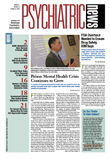Six in 10 people who use complementary and alternative medicine (CAM) therapies as sleep aids also use conventional treatment such as hypnotic medications and cognitive-behavioral therapy to help their sleep, a nationwide health survey shows.
Little is known about the efficacy of CAM therapies for sleep, according to Nancy Pearson, Ph.D., and colleagues at the National Center for Complementary and Alternative Medicine at the National Institutes of Health.
As a first step toward obtaining that information, Pearson's group examined the use of CAM therapies as sleep aids by respondents to the 2002 National Health Interview Survey. The researchers reported their findings in the September 18 sleep theme issue of the Archives of Internal Medicine.
Some 31,044 adults, a representative sample of the U.S. civilian community-dwelling population, responded to the survey, conducted face to face in English or Spanish by the National Center for Health Statistics of the Centers for Disease Control and Prevention.
Insomnia Linked to Worse Health
About 17.4 percent of respondents reported that they “regularly had insomnia or trouble sleeping” in the preceding 12 months. Even though“ trouble sleeping” could encompass disorders other than insomnia, that figure falls within the wide range of previous estimates of the prevalence of insomnia in the United States. It extrapolates to an estimated 36 million American adults. The survey did not ask about the severity of sleep problems.
More women (61 percent) than men (39 percent) reported difficulty sleeping. Sleep problems peaked in those aged 45 to 54, then declined, and rose again only in those aged 85 and older. This finding differs from those of earlier studies that suggested people in their 60s and 70s have more trouble sleeping than do younger adults.
People with anxiety or depression were five times more likely to report poor sleep than people without those disorders. Congestive heart failure doubled the risk of poor sleep, while hypertension and obesity increased it slightly, compared with not having those health problems.
Poor sleepers reported worse health overall. Nearly 96 percent of them reported having one or more of 50 medical disorders listed on the survey. By comparison, 30 percent of those who said they had no sleep problems said they had none of those disorders.
Insomnia associated with other disorders, once labeled“ secondary,” now usually is called “comorbid.” The new usage reflects recognition that sleep problems may exacerbate or even play a contributory role in psychiatric and other illnesses, as is thought to occur between insomnia and depression, for example.
Many Try CAM But Don't Tell
About 4.5 percent of people who reported chronic insomnia or trouble sleeping—an estimated 1.6 million adults—said they used one or more of 27 CAM therapies.
CAM therapies, the researchers noted, include “medical practices that are unproven by science and not presently considered an integral part of conventional medicine.” About two-thirds of CAM therapies are biologically based; these include vitamins, herbs, and hormones such as melatonin. Mind-body techniques, including biofeedback, relaxation, visualization, hypnosis, yoga, and meditation, comprise the majority of other CAM therapies.
Nearly two-thirds of CAM users said they had tried biologically based therapies for sleep. Nearly 40 percent said they had used mind-body therapies. Younger adults and those with higher educational attainment—people most apt to use CAM therapies in general—also were the highest users of such therapies for sleep.
When asked why they had used CAM therapy, two-thirds of respondents said they thought it would be interesting to try. Nearly as many said they thought combining CAM and conventional treatment would be helpful. The survey did not ask respondents which conventional therapies they used to aid sleep or which ones they used in conjunction with CAM therapies.
Nearly 40 percent of CAM users had not told their conventional medical practitioner they used such therapy to aid sleep, while 35 percent reported that a conventional medical professional had suggested they try a CAM therapy.
Nearly half of those who used herbal therapies or relaxation therapy—the CAM approaches most often used to aid sleep— said they felt that such therapies “helped their condition a great deal.”
More than half of CAM users rated such therapy as “very important” to maintaining their health and well-being.
The survey does not directly address the efficacy of CAM therapies, the researchers acknowledged. Users' positive perception of benefits of CAM therapies, they said, “could be due to a placebo effect, the natural history of the condition, or other unidentified influences rather than efficacy of the CAM treatment.”
In an accompanying editorial, Phyllis Zee, M.D., Ph.D., and Fred Turek, Ph.D., both of the Northwestern University Feinberg School of Medicine, noted that medications used in the routine care of patients with medical, neurological, and psychiatric disorders sometimes cause insomnia.
Four in 10 respondents in the Pearson study said they tried a CAM therapy for sleep because conventional treatments had not proved helpful.
